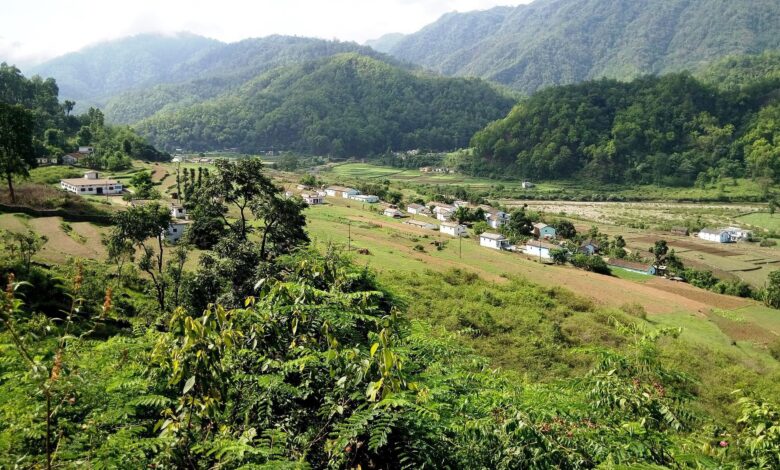Best Places to visit near Jim Corbett National Park

There can’t be a better spot than taking the to organise a wonderful wildlife trip than taking Jim Corbett National Park Tour, with its verdant hills, a sense of excitement at every turn, a healthy tiger population, the best bird-watching opportunities, and a variety of luxury lodgings. Corbett is home to a number of well-known hill stations.
Nainital, which is 80 kilometres distant, is the nearest of these. These are hidden retreats where you may recharge your batteries. While Lansdowne can offer you a laidback scenic retreat to relax with your loved ones, Sitabani Forest Reserve lets you spend time in the midst of feathered animals as well as gives you a chance to adorn the landscapes.
Tourists can also head over to Kalagarh Dam located on the banks of the Ramganga River and home to a variety of migrating birds, making it a good location for ornithologists to watch numerous bird species, particularly during the winter months. If you’re planning a week-long trip in Corbett National Park, be sure to stop by these wonderful locations.
Lansdowne
The cantonment town of Lansdowne is a laid-back scenic site near Jim Corbett National Park, and one of the most attractive places to visit during Jim Corbett National Park Tour. During the British era, it was called for the viceroy of India.
The town’s native structures still provide colonial views, although there are few tourist attractions. There are a few outstanding tourist destinations around Jim Corbett that provide a variety of fun activities.
Read also: 5 Beaches to Visit in South Goa
Lansdowne has been a popular area to meet with friends and spend the evening over a campfire and BBQ during the last several years. It is one of the most beautiful destinations to visit near Jim Corbett and is a great weekend break from Delhi.
Sitabani Forest Reserve
Sitabani is a hard forest region located around 10 kilometres from Ramnagar, however it is not part of the Corbett Tiger Reserve. It is a birdwatcher’s paradise since it is the only site in the vicinity where a variety of feathered animals adorn the landscape. Aside from that, the reserve is home to a variety of species such as barking deer, tigers, leopards, wild boars, elephants, and king cobras.Sitabani is also historically significant; according to the epic Ramayana, it is the same site where Goddess Sita (Lord Rama’s bride) spent her days of banishment.
Forest officials have designated the region as a buffer zone, and only elephant and Jeep safaris are permitted.
For tourists who enjoy elephant rides in the middle of the jungle, Corbett is a dream come true. Bijrani, Dhikala, Khinnanauli, Gairal, and Jhirna all provide elephant rides escorted by professional Mahouts. You must get permission for an elephant ride, which is offered in two shifts – morning and evening in each zone.
Another ideal location for a Jeep safari to get up and personal with the wildlife. This location is also known for its diverse flora, which includes Sheesham, Sal, Dhak, Kanju, Haldu, Mangos, Pipal, and Rohini trees for more read the Thrillophilia reviews and book a memorable trip with us.
Kalagarh Dam
The Ramganga Multipurpose Project includes Kalagarh Dam, which was erected in 1947 and is also known as Ramganga Dam. The goal of the project is to provide irrigation and hydropower to the surrounding communities. It’s inside Jim Corbett National Park’s limits, and it’s a major tourist attraction.
Kalagarh Dam, which is located on the banks of the Ramganga River, is also responsible for delivering energy to Jim Corbett National Park.
Also Read: Places to Enjoy in Dubai with Family
The dam region is home to a variety of migrating birds, making it a good location for ornithologists to watch numerous bird species, particularly during the winter months. It’s also a great place to have a picnic with family and friends. This lovely water site whisks you away from the stresses of everyday life and places you in the tranquil settings of the dam and its natural surroundings.
Dhikala Tourism Zone
Dhikala is a popular tourist destination that you should visit during your Jim Corbett National Park Tour. Located on the edge of the vast Patil Dun valley, where the Ramganga runs via various channels. Dhikala is around 35 kilometres from Dhangarhi Gate, providing a more authentic wilderness experience. The Dhikala Forest Lodge is the only spot in Indian National Park where you may spend the night in the middle of nature.A hard core wild lifer advises a highly intriguing location to stay in. It provides a spectacular perspective over the valley, including the Kanda.
Jhirna Tourism Zone
Jhirna is a densely forested location in the park’s southern reaches that is known for easy animal observations. It is one of the most popular sites to visit in Jim Corbett because you will get the opportunity to witness various animal species in their natural environment, including Nilgai, Sambhar, Cheetal, and Royal Bengal Tiger.
Aside from that, a healthy population of wild elephants and sloth bears may be found here. You may schedule a night stay at Forest Rest House Jhirna for more excitement and thrills, as tigers are known to frequent this spot at night. For more information check Thrillophilia reviews.




